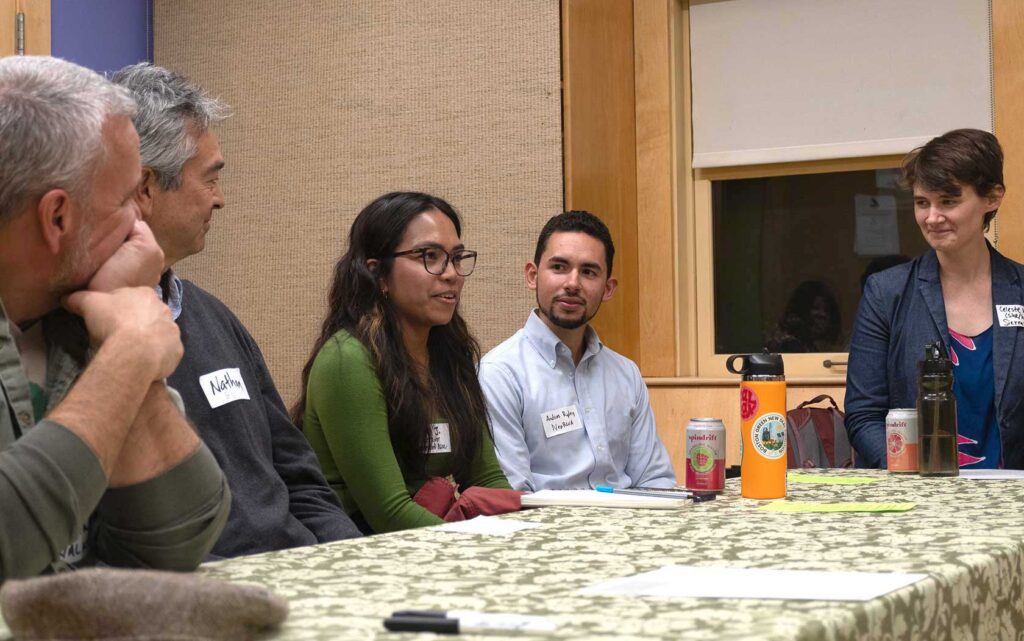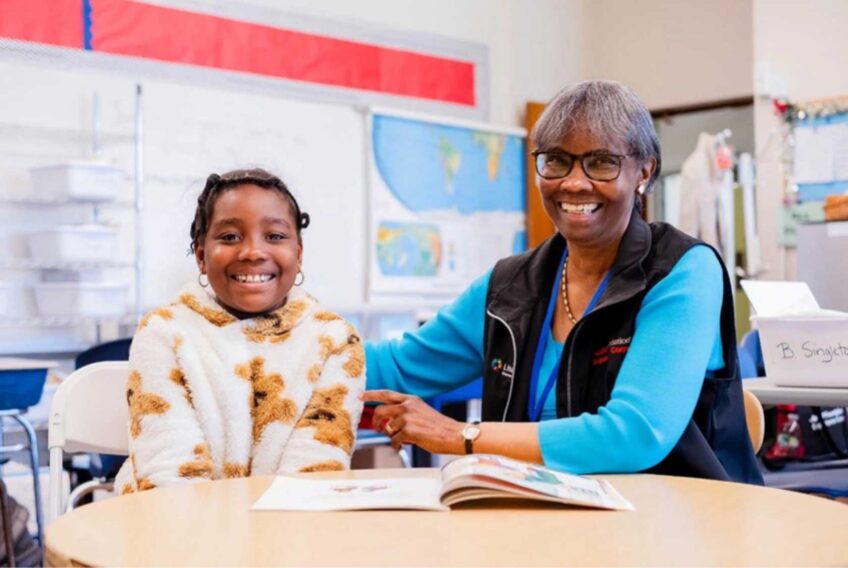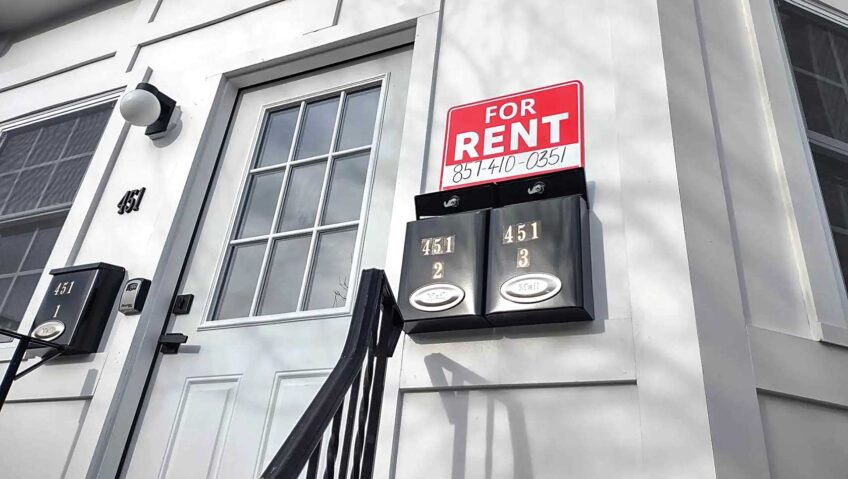To fight climate change, form coalitions and ‘be belligerent,’ panelists advise

Coalitions are key and belligerence is necessary in the fight against climate change, panelists at a forum on climate change solutions advised.
The forum, which focused on “nature-based solutions” like tree coverage, protection of wetlands and watersheds, more permeable ground to reduce flooding and regulations governing those practices, was held Oct. 18 at Mass Audubon’s Nature Center in Mattapan.
Bringing together a mix of residents and organizations in coalitions offers hope for being able to build productive working relationships with the city and state governments, said Dira Johanif, senior climate resilience associate at the Charles River Watershed Association, who also represented the Boston Green New Deal Coalition at the forum.
“There’s a lot of hard things that need to be worked out — How do we work with the city? How do we work with the state? — but I think folks in the coalition have a lot of faith that we can do it, because we’ve already brought in so many people together with different skillsets and we’ve made progress,” she said. “It might be slow, it might be small, but I think it’s taking one step at a time.”
Those coalitions also provide a stronger force to work with governmental entities, said Celeste Venolia, forest protection team organizer at the Massachusetts chapter of the Sierra Club.
“We can work with the Wu administration — and also, on the broader scale, the state — to advance nature-based solutions, climate and environmental justice, by leveraging our collective power through coalitions like the Boston Green New Deal Coalition,” said Venolia.
Efforts to drive the use of nature-based solutions in Boston also rely on holding officials accountable, said John Walkey, director of Waterfront and Climate Justice Initiatives at GreenRoots in East Boston and Chelsea.
Walkey, whose closing remarks reminded attendees to “be belligerent,” said accountability is essential, given the scale of the challenges the city is facing.
“What we are fighting is a very large system. It’s the system that’s so large it screwed the entire climate of the planet, and we’re trying to deal with it and turn it around,” he said. “The best we can do is hold the elected officials we put in there — because we trust them — hold them accountable and help them change that system because they can’t do it on their own.”
Many Boston organizations have already started policy conversations with the city, Johanif said.
“Right now, it’s really maintaining that relationship and building it so that it’s not just going to be ‘Come to one meeting, don’t see each other until the next meeting.’ There’s consistent communication between the groups, the folks and the different opportunities that arise,” she said.
That work also involves finding ways to make the efforts mutually beneficial, panelists said. For instance, providing support letters as the city seeks funding that show that the city is working with the community and the work is actually what the community wants, Johanif said.
“Nature produces synergies, or win-wins, all the time, multiple benefits,” said Nathan Phillips, a Boston University professor of earth and environment. “I think that city governments, state or federal governments, when they can see that there’s ways to have win-wins, then it’s possible to turn two problems into one solution.”
Phillips pointed as an example to PowerCorpsBOS, a city program that provides workforce training opportunities for forestry jobs, offering marginalized communities in the city new job openings while maintaining the city’s urban tree canopy.
Discussions about nature-based solutions are “one waypoint” in the bigger fight against climate change, said Frank O’Brien, a member of the Crane Ledge Woods Coalition, which convened the forum.
“There’s a number of strategies that the Wu administration is seeking to put into place,” he said in an interview. “Some of them have to do with things like electrification and improving public transit, like making certain bus routes free, and all that’s really useful, but at the same time, there is a very key piece, which is working with nature to help address human impacts, like from extreme weather or sea level rise or flooding, but also for the benefits that natural habitats bring generally to everybody.”
The focus on community engagement went beyond the panelists’ conversation. Central to organizing the event was working with a host of community organizations to shape the structure of the event, O’Brien said.
Similarly, he said its main goal was to understand what priorities and concerns residents have and to take those into meetings the coalition is planning with the Wu administration.
“The mayor herself has indicated that climate and addressing climate change is one of the most important priorities that she hopes to work on and she started doing that, but we think there’s much more to be done, and we want to collaborate with that,” O’Brien said.
While no specific date has been set, O’Brien said the Crane Ledge Woods Coalition hopes to hold those meetings before the end of the year.






